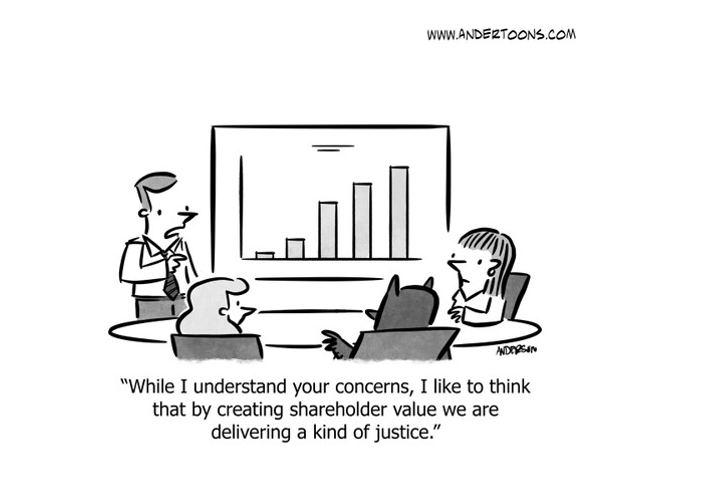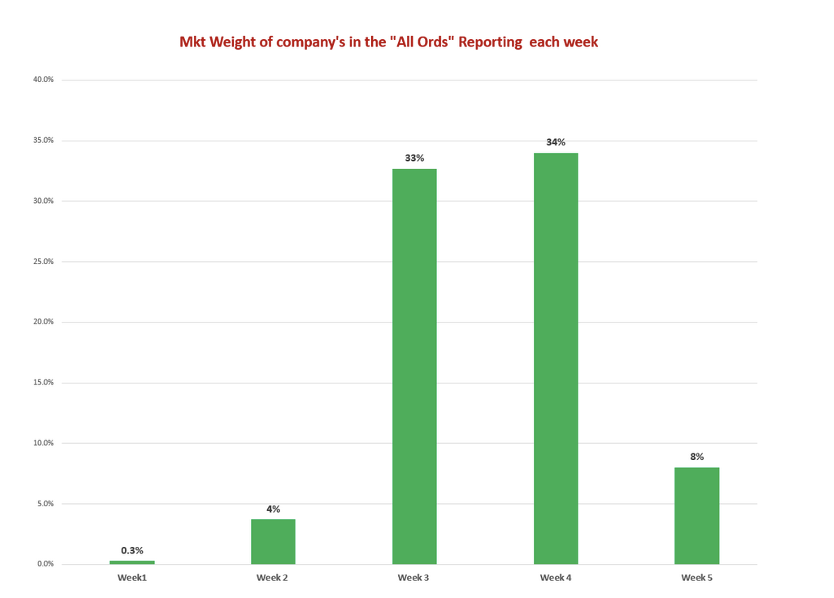What really goes on during ASX reporting season?
For equity analysts and fund managers in Australia, Christmas comes twice a year, every February and August, when most Australian listed companies reveal their semi-annual profit results. Companies also guide what growth in profit, revenue, profit margins or dividends that shareholders can expect over the following financial year.
When companies miss market expectations on earnings, guide to a bleaker future or, worst of all, as Star Entertainment (ASX: SGR) did last February, conduct a surprise capital raising to coincide with the release of their result, the day can be very unpleasant. Alternatively, it can be enjoyable when the company reports a result that validates the investment case for including the stock in the portfolio.
In this piece, we will go through how Atlas approaches each day during reporting season and what goes on during a typical day during the earnings season.

Before reporting season
In the lead-up to reporting season, Atlas reviews all the stocks in the portfolio and considers the key factors and financial metrics that investors will be looking for on results day. We compare our forecasts to the consensus analyst forecasts.
What we are trying to do here is to identify which companies are performing ahead of expectations and, more importantly, which companies have the potential to disappoint. For example, in January, we trimmed our position in electrical retailer JB Hi-Fi (ASX: JBH), based on the view that price movement in December and January (up +23%) was excessive based on our expectations of their upcoming financial result.
In the case of the large mining and energy companies' investors have fewer surprises on results day. This occurs as these companies release a production report in mid-January detailing the tonnes of iron ore or LNG produced along with the average price received. This allows investors to back-solve for expected profits based on assumed production costs. In January 2023, the production reports were mostly benign except for nickel and lithium producers that announced mine closures in the face of sharp falls in commodity prices. However, not all closures are bad. Alumina (ASX: AWC) saw a rally in its share price after announcing the closure of its loss-making Kwinana alumina refinery in a move that was likely to both boost Alumina's profits and support global alumina prices.
Confession Season
The months leading up to the start of each reporting season are known as "Confession Season", namely November, December, and January, as the companies become aware that they will not meet profit expectations and then "confess" their sins. When business conditions are occasionally stronger than expected, the company will upgrade guidance before results day.
The Corporations Act imposes continuous disclosure obligations on listed companies, which require that companies keep the market informed of any market-sensitive information that would materially impact the company's stock price. This is done to maintain market integrity and prevent some traders from using inside information on a company to the detriment of others, such as knowledge that a company's earnings will be below expectations. Last week, Domino's Pizza (ASX: DMP) announced that their earnings for the past six months would be below prior years' earnings due to falling sales in Asia and Europe. Domino's Pizza's share price fell 31%, as this news was combined with management withdrawing previously issued full-year 2024 profit guidance.
When a company has already revealed their unexpectedly poor results before reporting season, the focus on results day is not on the actual profit numbers but on a detailed explanation of what caused the issue and the management's plan to fix it. This often sees a rebound in the company's share price when the "facts" are more benign than the "fears".
For example, in June 2023, CSL's (ASX: CSL) share price fell sharply after the company disclosed before the result that currency headwinds from a stronger USD would impact their August result. August 2023 saw the share price begin to recover after the company gave a positive outlook for FY24 on improved plasma collections. Indeed, this currency issue proved to benefit Australian investors, who saw their dividends increase by +15%.
The spread over the month
Companies listed on the ASX with a June year-end have until the last day of August to release their financial results; otherwise, they are suspended from trading on March 1st. However, results are not released evenly throughout the month as companies tend to avoid reporting either in the first or last week of the month, preferring the middle weeks. Consequently, there are days when several large companies report on the same day and often at the same time, which often results in the market making swift and poorly considered decisions as to whether the result is either good or bad. Frequently, we see a stock trading down on what Atlas considered to be a favourable result, only to see the company's share price recover the following day after investors have digested the financial reports.
The chart below shows the distribution of results during the upcoming reporting season, with the week starting February 12th being the heaviest. Thursday, February 15th will be challenging for analysts, with Goodman (ASX: GMG), Origin Energy (ASX: ORG), South32 (ASX: S32), Telstra (ASX: TLS), Treasury Wine (ASX: TWE), Vicinity Centres (ASX: VCX), Whitehaven Coal (ASX: WHC), and Wesfarmers (ASX: WES) all reporting.
On a busy day with multiple companies reporting simultaneously, we will skim through the results and look at the initial price movement at the market open to guide which companies to prioritise. The focus will then shift to those companies whose share prices are falling, either to understand the flaw in our investment thesis or to see whether the weakness is temporary and could represent a buying opportunity.
Headlines in the financial press are frequently misleading as to how the company performed over the past period. Some journalists use the statutory result (which can include well-telegraphed non-cash items such as write-offs) in their headlines to generate maximum impact. This can result in headlines like "Company X slumps to a $500 million loss". However, the cash profit available to be distributed to shareholders may have been $250 million, and the company wrote off $750 million in goodwill from an acquisition made years ago. On results day, the company's share price may rise in the face of this "shock" loss.

On the day
Generally, companies post their financial results with the ASX around 9 am; this gives investors an hour to digest the facts and figures before trading on the stock exchange begins at 10 am.
During this period, we will comb through the profit and loss, balance sheet and cash flow statements, comparing our forecasts to what the company delivered. Also, it is important to compare how a company has performed against their competitors. For example, in isolation, JB Hi-Fi (ASX: JBH) or Coles (ASX: COL) reporting a slight decline in sales and a steady profit margin could signal a great result if Woolworths (ASX: WOW) or Harvey Norman (ASX: HVN) reported significant decreases in sales and shrinking profit margins.
Company management will then formally present their results to shareholders on a conference call or in person during the morning, generally between 9 am and midday. These presentations are directed towards the institutional investment community and are generally closed to the media and public. They can take 45 minutes to two hours, depending on the company's complexity, analyst interest or the negative result that requires management explanation.
Before COVID-19, these events were held in person at a hotel auditorium or the company offices, though in 2023, most companies (except a few financial companies) will host the presentation online. Most investors appreciate this change as there are often days when several companies report, some at the same time.
During the call, the management team details the factors contributing to the profit result and explains any potentially contentious issues. The most informative part is always the question-and-answer session, which allows investors to gauge how confident management is in tackling the most controversial problems from their financial accounts.
Typically, it will only be the sell-side analysts asking management questions, with the large institutional investors saving their questions for behind closed doors. The problem with this is that in addition to writing research, some sell-side analysts want to protect their relationship with the company and keep on its good side for future lucrative investment banking deals. Frustratingly, this can sometimes see soft questions being served up for management or avoiding the hard questions when the management has made some mistakes.
After the presentation of the results, Atlas will generally have a quick discussion to see if there have been any fundamental changes to our thoughts and discuss the market reaction. The immediate market reaction can often be misleading, as most of the trading on results day is done by hedge funds or high-frequency algorithmic trading done by computers rather than long-term fundamental investors.
Immediately afterwards
Over the following week, the company will organise individual one-hour meetings with their largest institutional shareholders in Australia and overseas. Before these meetings, it is essential to be well prepared, as this is frequently the best forum to understand whether you should buy more of a company's stock or completely sell out.
During our meetings with the management teams, we will generally seek clarity (on behalf of our investors) on specific issues that we feel weren't covered to our satisfaction at the formal presentation. While some of these meetings can be either quite hostile or very friendly, they are a valuable forum for both parties to give feedback on how our client's capital has been managed in the past and how that capital should be employed in the future.
I have been in these meetings where management has raised a strategy that seemed at odds with our expectations. In this case, cashflows from a successful gold project would be diverted to developing a mine in Cote d'Ivoire instead of paying dividends to patient shareholders. What became apparent in this meeting was that the management team as engineers was motivated by the challenge of building a new mine in a demanding jurisdiction. In contrast, this fund manager was more interested in seeing our investors receive a return on capital. Mining ended up being suspended several times due to the deteriorating security situation in the country.
After the management meetings and after reviewing the financial results of a company's competitors, Atlas is then in a position to determine what changes (if any) are made to our valuation of the company and whether the results have changed our investment thesis for owning the company.
3 topics
16 stocks mentioned

